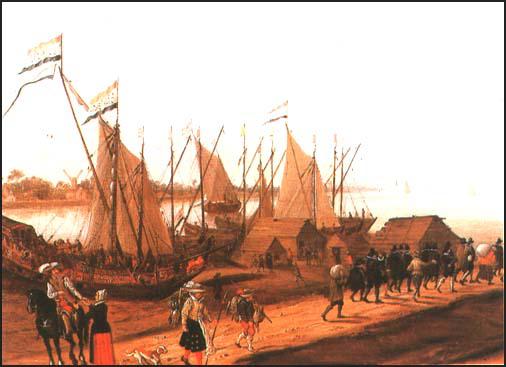John Carver
John Carver was born in England in about 1575. He joined the Separatists, a Puritan religious group who were highly critical of the Church of England. They were followers of Robert Browne, a preacher who thought the Church of England should abolish bishops, ecclesiastical courts and other relics of Roman Catholicism such as kneeling and the use of priestly vestment and altars. The Separatists also believed that the government was too tolerant towards those who were guilty of adultery, drunkeness and breaching the Sabbath.
The Separatists, who held their church services in secret, were persecuted and several members were imprisoned for their activities. The Dutch government had a reputation for tolerance towards dissenters and in 1608 Carver and a group of Separatists decided to emigrate to Holland. Carver and his friends soon became disillusioned with life in their new home. They could only find low-paid work and they feared that their children were losing their English identity.
In 1620 Carver, William Bradford, Edward Winslow, William Brewster and other Separatists based in Holland decided to emigrate to America. One hundred and two people boarded the Mayflower in Delft Harbour and after crossing the Atlantic they decided to settle at a place they called Plymouth in Massachusetts Bay.
The Separatists established their own government and Carver was elected governor of the colony. The plan was for the pilgrims to live on fish caught from the sea. However, they were not very successful at this, and by the spring of 1621 half of them had died of starvation or disease. This included John Carver who died five months after arriving in America in April, 1621. He was replaced as governor of the colony by William Bradford.

Primary Sources
(1) William Bradford, History of the Plymouth Plantation (1651)
They (the Plymouth Colony) chose Mr. John Carver (a man godly and well approved them) their governor for that year. And after they had provided a place for their goods, or common store (which were long in unlading for want of boats, foulness of the winter weather, and sickness of diverse kinds) and begun some small cottages for their habitation, as time would admit, they met and consulted of laws and orders, both for their civil and military government. In these hard and difficult beginnings they found some discontents and murmurings arise among some, and mutinous speeches; but they were soon quelled and overcome by the wisdom, patience, and just and equal carriage of things by the governor.
(2) William Bradford, History of the Plymouth Plantation (1651)
In the month of April, while they were busy about their seed, their governor (John Carver) came out of the field very sick., it being a very hot day. He complained greatly of his head and lay down, and within a few hours his senses failed, so as he never spoke till he died, which was within a few days. He was buried in the best manner they could, with some volleys of shot by all that bore arms. And his wife, being a weak woman, died within five or six weeks after him.
